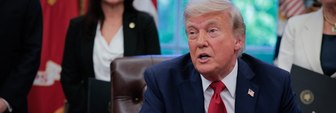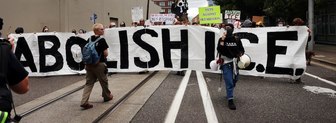I've already noted that, in the wake of last week's presidential debate, voters' perceptions of Romney and Obama's ideologies didn't change much, despite Romney's much ballyhooed pivot to the center. Now, I will show what did change: the impressions voters had of Obama and Romney as people.
YouGov polls have been asking Americans to indicate whether they think 16 different adjectives do or do not describe Romney and Obama -- such as "bold," "effective," "strong," "patriotic," "arrogant," etc. Respondents could also leave these items blank, indicating no opinion. All of these items were not asked in the context of the debate itself -- i.e., was the candidate "effective" in the debate -- but overall.
In the wake of the debate, people tended to view Romney more positively, but Obama less positively, on several of these attributes. In the graph below, I present 6 attributes on which there were particularly notable shifts (or, in one case, a notable lack of change). The graphs present the percentages of people who think that the characteristic does describe Obama or Romney.
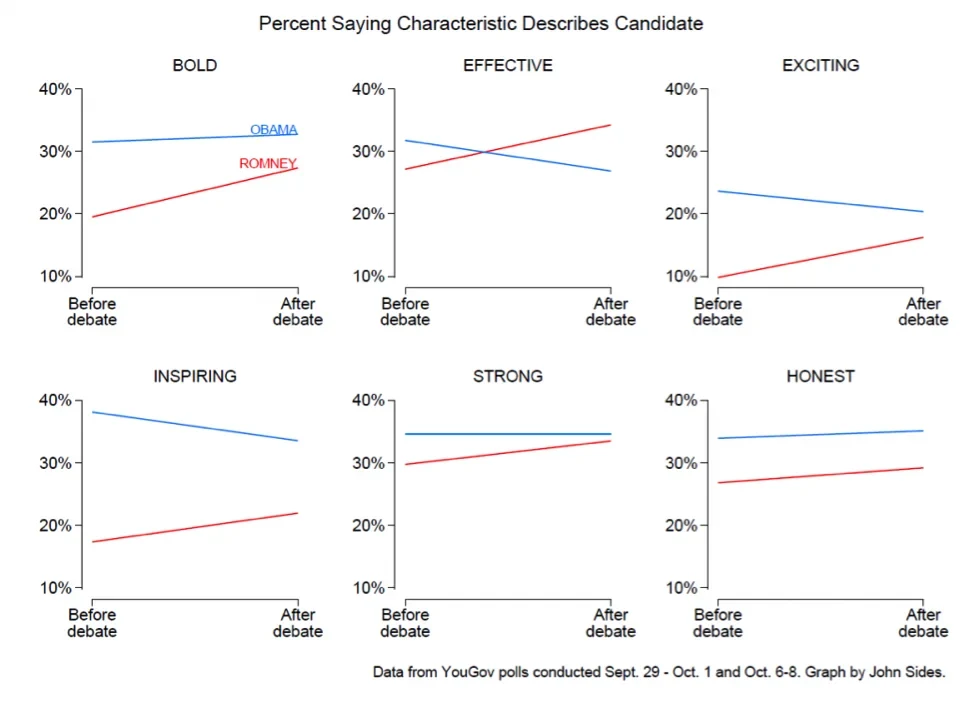
Romney was dealing with substantial disadvantages on these dimensions before the debate, but after the debate he began to close these gaps and in one case ("effective") opened up a lead. More respondents described him as "bold," "effective," "strong" -- even "exciting" and "inspiring." But fewer respondents described Obama in most of these ways: he experienced drops nearly across the board. In short, Obama's general likability, long an asset in this race, suffered relative to Romney's.
But note the lack of trend for "honest." After the debate, slightly more people actually labeled Romney and Obama honest -- despite claims by Obama during the debate, and by Democrats after the debate, that many of Romney's statements during the debate were false.
Two other survey questions buttress this conclusion. Respondents were asked whether the phrase "takes positions on issues and sticks by them" described Romney. Although a majority believed that describes Romney "not very well" or "not at all well," there was no trend before and after the debate. Similarly there was no trend in whether people believed Romney "says what he believes" or "says what he thinks people want to hear."
Among independents who had no partisan leaning, the shifts were equally if not more stark:
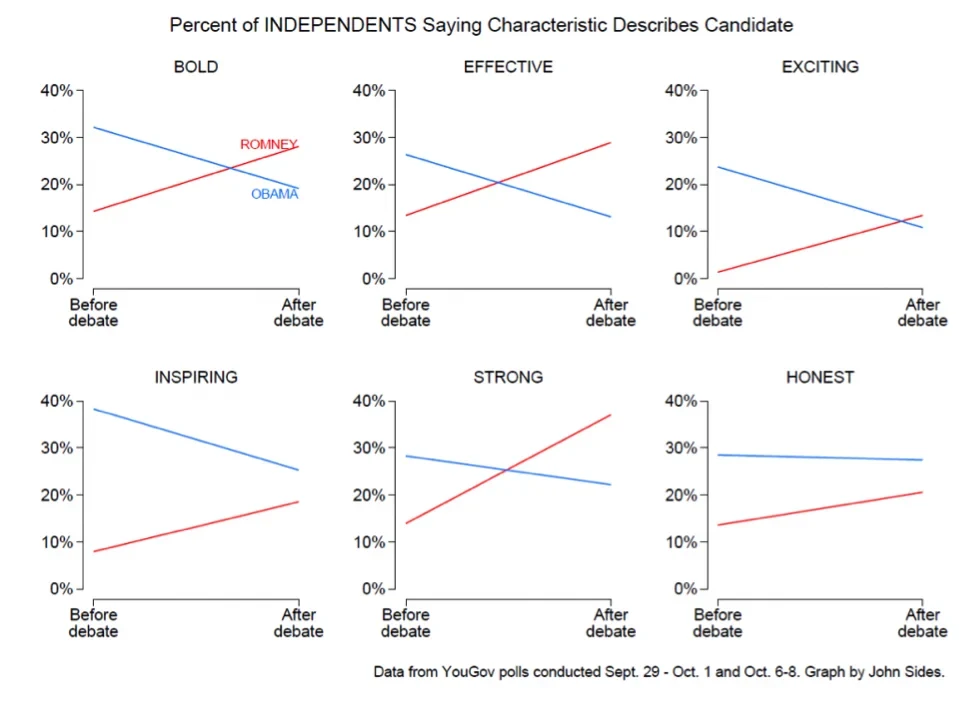
Obama actually loses his advantage outright on most of these dimensions. And, again, Romney suffers no consequences in terms of perceptions of "honesty." After the debate, more independents categorized him as "honest."
One last finding concerns the reactions of Republican and Democratic voters. In the wake of the debate, more Republicans had positive views of Romney on these dimensions, which is consistent with their greater enthusiasm for Romney overall. Democrats, however, had somewhat less favorable views of Obama after the debate-- perhaps not as unfavorable as this, but still.
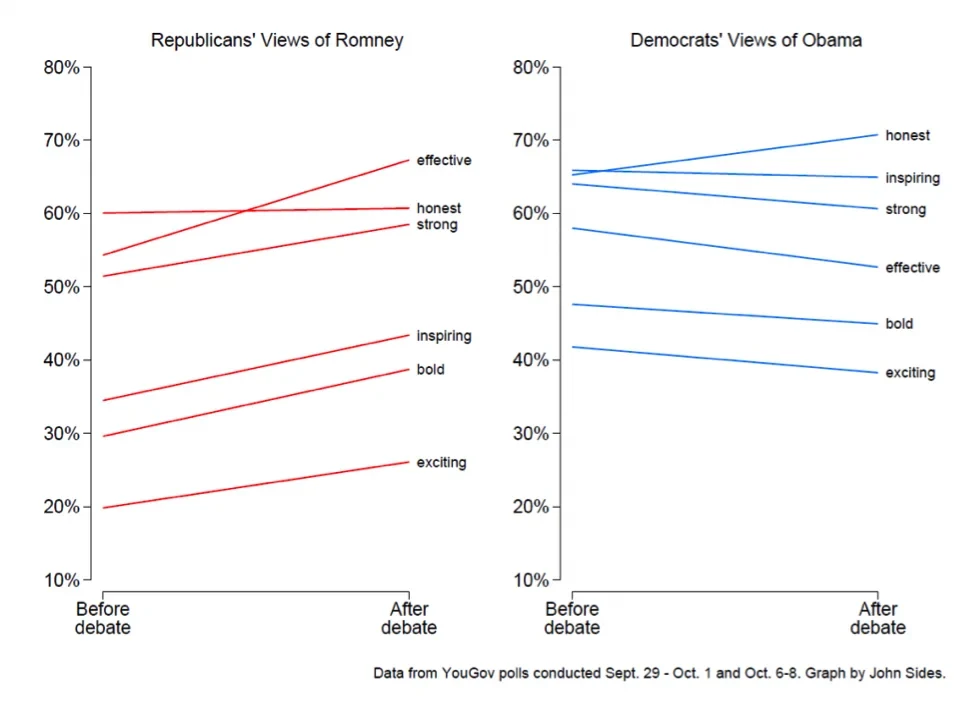
This is unusual: most campaign events serve to reinforce or increase party polarization, making Democrats and Republican love their candidate more and the other candidate less. In this case, Republicans followed this pattern, but Democrats did not, even if their reaction was not quite Chris Matthews-esque.
Ultimately, the question is whether these trends persist. The apparent size of this debate bump is certainly larger than my back-of-the-envelope prediction. It is more in line with a caveat I introduced in that post, and that Matt Dickinson noted as well: the bump seems to have brought the race closer to where it "should have been" based on the underlying fundamentals. But, as Ezra Klein wrote, the real question is the outcome of debate season as a whole. We'll know soon enough.





